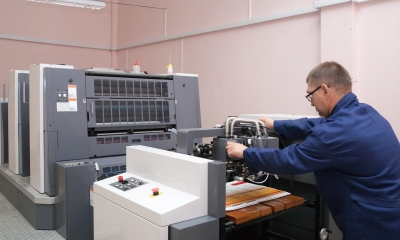
The following is an outline of some of the areas which may be relevant to your care home business.
What licences does a care home need?
Care home registration
As a care home, your business will be carrying out 'regulated activities' under health and social care legislation and so it is required to register with the appropriate national registering authority. The registering authority will inspect your home periodically to make sure that it meets the requirements of the statutory minimum standards. There is an annual fee for registration.
The national registering authorities in the UK are as follows:
- England - Care Quality Commission (CQC)
- Scotland - the Care Inspectorate
- Wales - Care Inspectorate Wales (CIW)
- Northern Ireland - the Regulation and Quality Improvement Authority (RQIA)
Care workers
The Disclosure and Barring Service (DBS) maintains lists of people who are barred from working with children or with vulnerable adults. You must not employ anyone who is included in the barred list. You must also inform the DBS if you consider that anyone working with children or vulnerable adults has harmed them or is likely to do so. You can find out more on the DBS website. A separate but aligned 'vetting and barring' scheme applies in Scotland.
In Northern Ireland, care home managers and social care workers in adult residential and nursing homes must be registered with the Northern Ireland Social Care Council (NISCC). There's more information on the NISCC website.
Other licences and registrations required
As you will be preparing and serving food you will need to register as a food business with your local authority environmental health department. Contact your local authority for details. They will inspect your premises and help you to comply with the requirements of food safety and hygiene legislation. There is no charge for registering.
If there are any televisions in the building, a TV licence must be obtained. Tariffs vary according to the size and type of home and whether all residents have TV sets in their rooms. Each communal area, guest room and staff accommodation area will need to be covered by a full TV licence. In addition, each resident's room (or flat or bungalow) will need an 'accommodation for residential care' (ARC) concessionary licence. These are available at a low rate for care homes so long as their residents are retired (aged over 60) or disabled. Contact TV Licensing for details.
If films are screened on a regular basis then a public video screening licence (PVSL) can be obtained from an organisation such as Filmbank. This enables businesses such as care homes to screen an unlimited number of films from participating film studios to a non-paying audience in return for a single annual fee.
A PPL PRS Ltd Music Licence is not normally required in a care home where music is used in a similar way to a domestic setting. However, a licence may be required to cover situations such as formal performances which residents are charged an entrance fee to attend.
Under the Data Protection Act a health services business that keeps computerised records of individuals' personal details may need to register with the Information Commissioner's Office (ICO). You can find out more on the ICO website.
Legislation of particular relevance to care homes
Throughout the UK there is specific legislation to regulate the activities of care homes. This applies to residential and nursing homes and sets statutory minimum standards for them to meet. These standards deal with all of the main aspects of running a care home and providing care services. More information is available on the Care Quality Commission (CQC) website - and those of the Regulation and Quality Improvement Authority in Northern Ireland (RQIA), the Care Inspectorate in Scotland, and the Care Inspectorate Wales (CIW).
Nursing and residential homes in Great Britain are required to register with the CQC in England, the Care Inspectorate in Scotland, or the CIW in Wales. Care homes in Northern Ireland have to register with the RQIA. Legislation sets out the 'regulated activities' which require health and care providers in England to register if they undertake them. The registering bodies are responsible for inspecting registered care homes and ensuring that minimum standards are met. (A new registration and inspection system in Wales applies from April 2018. This introduces new care standards for care homes. It also introduces compulsory registration for domiciliary care workers from April 2020. You can find out more on the CIW website.)
The Disclosure and Barring Service (DBS) maintains lists of people who are barred from working with children or with vulnerable adults. You must not employ anyone who is included in the barred list. You must also inform the DBS if you consider that anyone working with children or vulnerable adults has harmed them or is likely to do so. You can find out more on the DBS website.
Care homes in Northern Ireland must only employ care staff and managers who are registered with the Northern Ireland Social Care Council (NISCC).
Medicines regulation
Regulations cover the supply and use of medicines in settings such as nursing homes. Only qualified prescribers can prescribe certain categories of controlled medicine, and medicines must be stored securely and administered properly. You can find out more about managing medicines in care homes on the National Institute for Health and Care Excellence (NICE) website.
Other important legislation
Other particularly relevant legislation includes:
- Mental Capacity Act: the Deprivation of Liberty Safeguards made under the Act apply to anyone aged 18 or over with a mental disability or disorder who lacks the capacity to make an informed decision about their care or treatment. The Safeguards require care homes to assess vulnerable people in their care to make sure that they are not being detained unlawfully. More information is available on the Gov.uk website
- Regulatory Reform (Fire Safety) Order: All employers must comply with fire safety regulations - this means carrying out a fire risk assessment at your premises and putting in place fire precaution measures. These could include fire alarm systems and extinguishers as well as clearly signed escape routes. If you have five or more employees your fire risk assessment must be written down. You're responsible not only for the safety of your staff and residents but also of anyone who might be on your premises, like visitors or suppliers. The Department for Communities and Local Government has produced several helpful guides for businesses. You can download these from the Gov.uk website. Information about fire regulations in Northern Ireland is available on the Northern Ireland Fire and Rescue Service website.
- Food Safety Act and regulations made under it: These cover the safety, labelling, make-up, preparation and storage of all types of food which are prepared commercially for human consumption. All premises where food is stored or prepared must be registered with the local authority environmental health department, who will inspect the premises. If your business produces food waste you must make sure you dispose of it correctly
- legislation covering safe keeping, security and access to medical and personal information records
Other areas in which special legislation may affect your care home business include:
- environmental protection and waste disposal, particularly hazardous and clinical waste
- working with potentially hazardous equipment, for example x-ray machines
- consumer contracts and fair trading
Illegal workers
As an employer it's your responsibility to check that someone you take on is entitled to work in the UK. There are fines for employers who employ illegal workers because they've failed to make the necessary checks. You can read more about preventing illegal working on the Gov.uk website.
Health & Safety, fire
You must comply with workplace health and safety and fire safety legislation.
You will also have to safeguard the health and safety of your residents and any visitors to your premises.
Employment legislation
Anyone employing staff must comply with employment legislation. Important areas of legislation include recruitment, employment contracts, pay, working hours, holidays, employment policies, sickness, maternity, paternity, discrimination, discipline, grievances, dismissals, redundancies and employment tribunals.
Insurance for a care home
Contact an insurer or insurance broker and explain exactly how your business will operate - they will then explain what insurance cover you must have by law, and other cover you should consider. This might include:
- employer's liability
- public liability
- medical malpractice
- loss of registration
- legal expenses
- bad debt cover
- employment disputes
- building and contents
- alternative accommodation
- damage to residents' belongings
- business interruption
- motor insurance for any business vehicles
Note that if residents bring their own furniture into the home it must meet current fire safety standards. Furnishings that don't comply can invalidate your insurance - you will also be breaking the law.
You can find details of insurance providers to the care home sector in the Supplier Directory on the National Care Association website.



